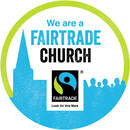Dying, Funerals & Bereavement
Eternal rest grant unto them, O Lord, and let perpetual light shine upon them.
May they rest in peace.
May they rest in peace.
The Art of Dying Well
It is sometimes said that the only certainty in life is death. Without downplaying the sadness of death and bereavement, dying can be a dignified and even beautiful passing from this life to the next. As Christians, we believe that in dying life is changed, not ended. Jesus died but rose again, and we trust with hope in his promise that after death we shall encounter God face-to-face.
As death approaches, there are a series of prayers and rites that can help a person prepare spiritually for the final journey. These rites and prayers are illustrated in an animation on The Art of Dying Well website.
The parish priest at Our Lady's is available to administer the Last Rites (Sacrament of the Sick) in people's homes, in hospital, hospices, or care centres. You can contact via him the parish office. In urgent cases at York Hospital, staff can be asked to page the Catholic Chaplain on duty.
It is sometimes said that the only certainty in life is death. Without downplaying the sadness of death and bereavement, dying can be a dignified and even beautiful passing from this life to the next. As Christians, we believe that in dying life is changed, not ended. Jesus died but rose again, and we trust with hope in his promise that after death we shall encounter God face-to-face.
As death approaches, there are a series of prayers and rites that can help a person prepare spiritually for the final journey. These rites and prayers are illustrated in an animation on The Art of Dying Well website.
The parish priest at Our Lady's is available to administer the Last Rites (Sacrament of the Sick) in people's homes, in hospital, hospices, or care centres. You can contact via him the parish office. In urgent cases at York Hospital, staff can be asked to page the Catholic Chaplain on duty.
Funeral arrangements
When a loved-one dies, whether expected or not, it can be difficult to know what to do next.
If the person is in hospital, the family will be provided with a very helpful guide to registering the death, getting a death certificate, and informing a funeral director.
If the person dies at home, it will be necessary to inform a doctor as soon as possible in order to confirm the death and issue a certificate.
Anticipating their death, many people chose to make a will and make arrangements for their funeral service; this can include a choice of hymns, readings for the service, whether a burial or a cremation is preferred, what parish church the service may be in, whether or not they wish to have a Requiem Mass. It is always helpful for a person to make their wishes known to their family, but this isn't always an easy conversation to have.
The funeral director will contact the church in order to arrange a time for the funeral service in agreement with the priest. Your local priest or deacon will help in organising the funeral service, including the choice of hymns and music as well as readings, prayers etc.
Most people in Britain are now cremated rather than buried, and your local priest can preside over the cremation service, whether it follows a church service or not.
If you have any concerns, please feel free to contact the parish office for advice.
Further resources
When a loved-one dies, whether expected or not, it can be difficult to know what to do next.
If the person is in hospital, the family will be provided with a very helpful guide to registering the death, getting a death certificate, and informing a funeral director.
If the person dies at home, it will be necessary to inform a doctor as soon as possible in order to confirm the death and issue a certificate.
Anticipating their death, many people chose to make a will and make arrangements for their funeral service; this can include a choice of hymns, readings for the service, whether a burial or a cremation is preferred, what parish church the service may be in, whether or not they wish to have a Requiem Mass. It is always helpful for a person to make their wishes known to their family, but this isn't always an easy conversation to have.
The funeral director will contact the church in order to arrange a time for the funeral service in agreement with the priest. Your local priest or deacon will help in organising the funeral service, including the choice of hymns and music as well as readings, prayers etc.
Most people in Britain are now cremated rather than buried, and your local priest can preside over the cremation service, whether it follows a church service or not.
If you have any concerns, please feel free to contact the parish office for advice.
Further resources
- What to do when someone dies (UK Government website)
- Order of Christian Funerals (Liturgy Office of the Catholic Bishops' Conference of England & Wales)
Bereavement
The death of a family member or friend can impact on us in many different ways. Some people benefit from bereavement counselling. We hope to establish a bereavement support group at Our Lady's in the future. In the meantime, you can contact the pastoral team for advice, or Cruse Bereavement Care.
The death of a family member or friend can impact on us in many different ways. Some people benefit from bereavement counselling. We hope to establish a bereavement support group at Our Lady's in the future. In the meantime, you can contact the pastoral team for advice, or Cruse Bereavement Care.



